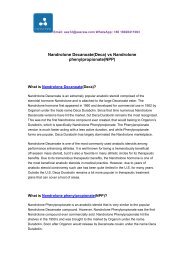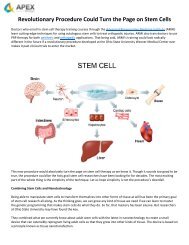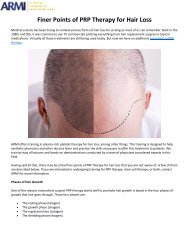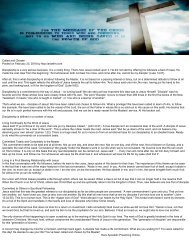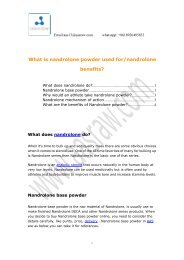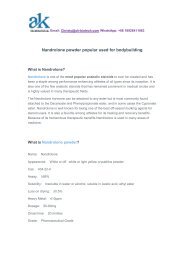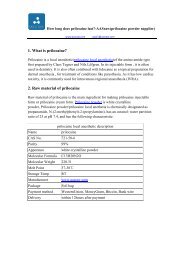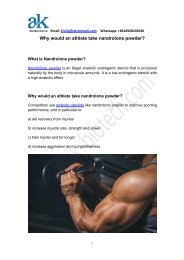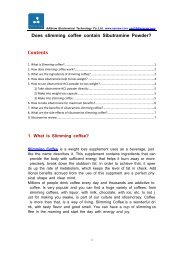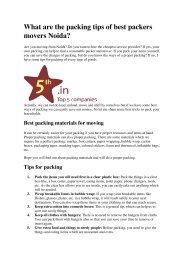THE 3-WEEK DIET
Many of us are paralyzed by the conflicting information being given out in the health and nutrition field. There are hundreds (if not thousands) of diets and nutritional plans, quick fix pills and powders, gadgets and gizmos, infomercials and gurus who are all giving us confusing and very often, conflicting information on how to lose weight.
Many of us are paralyzed by the conflicting information being given out in the health and nutrition field. There are hundreds (if not thousands) of diets and nutritional plans, quick fix pills and powders, gadgets and gizmos, infomercials and gurus who are all giving us confusing and very often, conflicting information on how to lose weight.
You also want an ePaper? Increase the reach of your titles
YUMPU automatically turns print PDFs into web optimized ePapers that Google loves.
<strong>THE</strong> 3! <strong>WEEK</strong> DIE T " I N T RO D UC T ION MANUAL<br />
PROTEIN, FAT, CARBOHYDRATES<br />
The primary nutrients humans consume are protein, fat and carbohydrates. Understanding the<br />
role each of these primary nutrients plays on our health and on our ability to gain or lose weight is<br />
an important feature of the 3-Week Diet. I strongly encourage you to familiarize yourself with this<br />
portion of the 3-Week Diet, as it will have long lasting ramifications on your daily life.<br />
Protein<br />
Proteins are the foundation of your body’s cells, tissues and organs. They are essential to your<br />
muscles, hair, skin, hair, organs and hormones. While the body can survive without eating another<br />
carbohydrate and while it can last for extended periods without eating fat, a lack of protein in your<br />
diet will cause degeneration of your muscle tissue and organs, which will eventually lead to death.<br />
Knowing how important protein is to the body, it is unbelievable to see how many people still get<br />
most of their calories from high-carbohydrate diets.<br />
Several studies have shown that the recommended daily allowance for protein consumption is far<br />
lower than it should be...especially for those engaged in regular exercise. What this research has<br />
shown is that people following the “recommended daily allowance” of protein consumption while<br />
engaging in regular physical activity, were actually losing valuable muscle tissue because there was not<br />
enough protein in the body to repair and rebuild their muscles after their workouts.<br />
Proteins are made up of amino acids and there are just 20 amino acids that make up ALL human<br />
proteins. Of these 20 amino acids, the body can only produce 12 of these itself. This means the<br />
other eight amino acids must be obtained through the foods you eat.<br />
Lysine, leucine, isoleucine, methionine, phenylalanine, threonine, tryptophan, and valine are the<br />
essential amino acids that are not made by the body (there are two others necessary for infants and<br />
small children). We get these amino acids when we consume protein sources like meat, fish, poultry<br />
and legumes.<br />
Protein sources that contain adequate amounts of all of the amino acids are called “complete proteins.”<br />
Those food items that do not contain all or adequate amounts of amino acids are known<br />
as “incomplete proteins.”<br />
t t t 15




